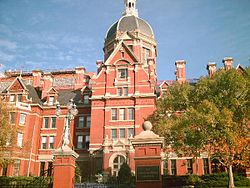
How and who to teach.
I taught medical students for about 40 years. Most of that interaction took place while making rounds with them and residents and in the operating room. There were some classroom sessions but most activity was in the clinical setting oriented around actual patients.
What is the best teaching method or how to teach are the first questions to be answered by any teacher? When I began the classroom was a place for lectures, replete with manual or power point slides. Bad idea. The lights go out and drowsiness ensues. A much more effective strategy eventually emerged; the winner is problem-based learning. When the classroom session is spent guiding the students through a real patient scenario, attention is more focused and retention is improved. And the students are more alert and all participate.
Teaching/learning in the clinical setting is the best. The lesson is connected to a real patient and real situations and really hits home. Sometimes information is simply dispensed. Two examples are pointing out the esophagus in the operating room and pointing out a lung cancer on a chest x-ray. Very useful is the so-called Socratic method involving questioning the student and allowing them to respond to the challenge. This should not devolve into harassment or embarrass the student. When it becomes obvious the student is not coming up with a response, it’s time to help them get to the proper understanding. The struggle to remember or deduce the answer reinforces their knowledge or points to areas to study.
I realized that not all students were equal. All of them had the brain wattage to get into medical school but some picked things up more quickly than others. I decided to pitch my educational efforts at the somewhat slower students who might miss important points if I didn’t go at their pace.
Finally, a challenge for the teacher was to resist the temptation to encourage a better student to head toward Surgery. It’s only natural to want to lure them to be your colleague. Another bad idea. If the career choice isn’t organic and come naturally, the student may end up unhappy. Then everyone loses; the student may have to start over in a different residency and the surgical residency loses one from its team.


